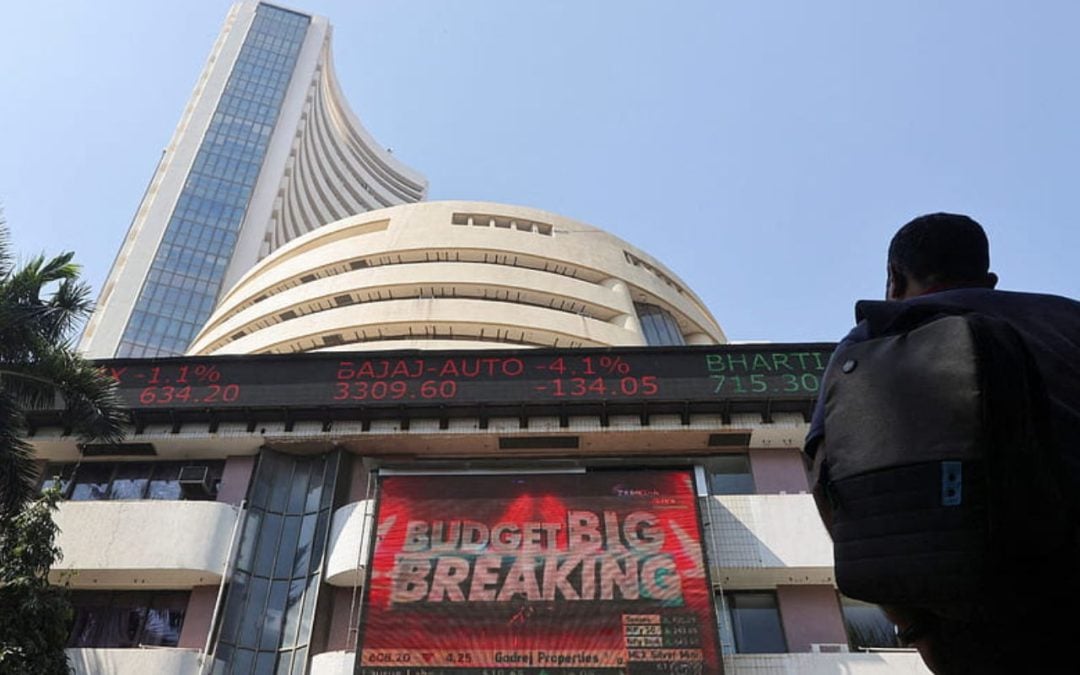BSE Limited shares fell around 7 percent to Rs.4,419.90 per share after Jefferies downgraded it to “Underperform,” citing a 21 percent downside. Jefferies highlighted that the near-term risk-reward for the stock looks “unfavourable,” prompting the downgrade.
Price Movement
BSE Ltd shares have shown impressive growth, climbing 30 percent in the past month and 57 percent over six months. The stock is up 102 percent year-to-date and 201 percent over the last 12 months, reflecting strong investor interest.
However on Wednesday, the stock hit an intra-day low of Rs.4,419.90, dropping 7 percent from its previous close of Rs.4,752.25 following the downgrade.
What Happened
On October 15, international brokerage Jefferies downgraded Bombay Stock Exchange (BSE) Ltd.’s stock to “underperform” from its previous “hold” rating. However, it raised the price target to Rs.3,500 from Rs.2,850 per share, implying a 21 percent downside from current market price.
Jefferies noted that BSE shares have more than doubled following SEBI’s new F&O framework, driven by expectations of market share gains.
Also Read: Navratna stock jumps 7% after receiving ₹80 Cr order from MHADA
The current valuation of 40 times FY26 earnings suggests that BSE’s market share is expected to increase from 13 percent this quarter to 30-35 percent, along with a 40-50 percent share in weekly contracts, which Jefferies considers “stretched.”
The brokerage also highlighted risks such as a 25 percent decline in overall market volumes, limited spillover gains, and potential future regulations. It deemed the stock’s near-term risk-reward “unfavourable,” prompting the downgrade.
In April, Jefferies had previously lowered its rating from “buy” to “hold” and reduced the price target slightly to Rs.2,900 from Rs.3,000.
Financial Performance
With a market capitalization of Rs.60,142 crores, BSE reported consolidated revenue of Rs.671 crores in Q1 FY25, a 158 percent increase from Rs.260 crores in Q1 FY24 and a 23 percent rise from Rs.545 crores in Q4 FY24.
The company experienced a 40 percent year-over-year decline in Profit After Tax (PAT), totaling Rs.264 crores in Q1 FY25, down from Rs.440 crores in Q1 FY24. However, PAT increased significantly by 147 percent from Rs.107 crores in Q4 FY24.
Shareholding Pattern
As of August 2024, BSE’s shareholding structure consists of Public Investors with a 39.5 percent stake, Trading Members at 17 percent, Body Corporates at 11.7 percent, and Foreign Portfolio Investors (FPI) and NRIs at 13.9 percent.
Qualified Institutional Buyers (QIB) hold 9.4 percent, Mutual Funds hold 4.8 percent, while Others account for 3.6 percent of the company’s shares.
About BSE
BSE Limited is a stock exchange based in India. The company operates as a transparent market for trading equity, debt instruments, equity derivatives, currency derivatives, interest rate derivatives, mutual funds, and stock lending and borrowing.
Also Read: Stocks under ₹50 with low PE and high piotroski score of 9
Written by – Siddesh S Raskar
Disclaimer

The views and investment tips expressed by investment experts/broking houses/rating agencies on tradebrains.in are their own, and not that of the website or its management. Investing in equities poses a risk of financial losses. Investors must therefore exercise due caution while investing or trading in stocks. Dailyraven Technologies or the author are not liable for any losses caused as a result of the decision based on this article. Please consult your investment advisor before investing.





